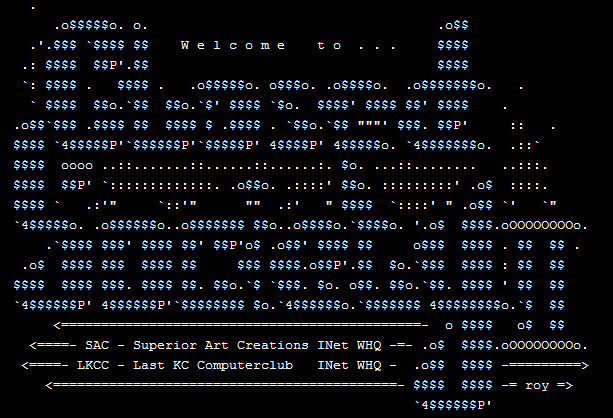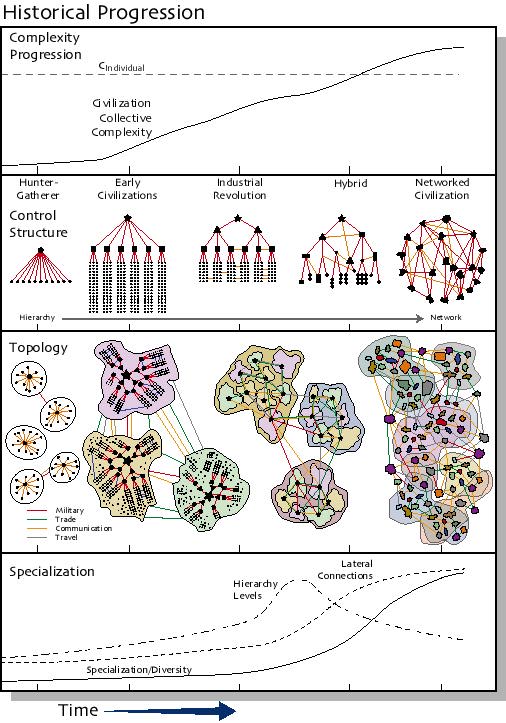
- Blogs (Apr 09, 2020)
- News (May 30, 2023)
- Organizations (Nov 04, 2023)
- People (Nov 03, 2023)
- Projects (Aug 08, 2024)
You can log-in or register for a user account here.

COMPLEXITY, SYSTEMS SCIENCE, AND COMPLEX SYSTEMS
• New England Complex Systems Institute | NECSI courses
• Complexity Explorer (courses) | Santa Fe Institute (SFI)
• Systems Innovation (videos) | playlists
• Portland State Univ. (PDX) Systems Science Program
• Capra Course | Trailer

"Single-layer feedforward artificial neural network" Akritasa, cc 2015

"Artificial neural network with layer coloring" glosser, cc 2013
Also see Imaginify Emerging Systems

 Wikipedia : Cycles
Wikipedia : Cycles
"This image has been (or is hereby) released into the public domain by its author, Cumbrowski at the English Wikipedia project.
This applies worldwide. In case this is not legally possible:
Cumbrowski grants anyone the right to use this work for any purpose,
without any conditions, unless such conditions are required by law."
Time ^ Calendar
Planetary cycles
Astronomical cycles
Climate and weather cycles
Geological cycles
Organic
Agricultural cycles
Biological and medical cycles
Brain waves and cycles
Physics
Mathematics of waves and cycles
Electromagnetic spectrum
Sound waves
Manmade
Economic and business cycles
Music and rhythm cycles
Religious, mythological, and spiritual cycles
Social and cultural cycles
Military and war
Literature
& Spirals . . .
10th Anniversary of Media Ecology
 "Kurt Gödel's (1906-1978) monumental theorem of incompleteness demonstrated that in every formal system of arithmetic there are true statements that nevertheless cannot be proved. The result was an upheaval that spread far beyond mathematics, challenging conceptions of the nature of the mind."
"Kurt Gödel's (1906-1978) monumental theorem of incompleteness demonstrated that in every formal system of arithmetic there are true statements that nevertheless cannot be proved. The result was an upheaval that spread far beyond mathematics, challenging conceptions of the nature of the mind."Harvard University

"I am a Strange Loop" (2007), seeks to demonstrate
how the properties of self-referential systems,
demonstrated most famously in
Gödel's Incompleteness Theorem, can be
used to describe the unique properties of minds.
- Douglas_Hofstadter, Center for Research on Concepts and Cognition
Indiana University
"Douglas R. Hofstadter: Analogy as Core, Core as Analogy"
Glen Worthey, Humanities Digital Information Service (HDIS), Stanford University Libraries, 2006
"Is the core of cognition and animacy essentially only self-representation and self-reference (as in Bach, in our DNA and elsewhere)? Is it essential incompleteness (as in Gödel’s Theorem and elsewhere)? Is it strange loops and tangled hierarchies (as in Escher, in Hofstadter’s own book, I Am a Strange Loop, and elsewhere)? Is it in the patterns, puzzles, paradoxes, puns, poetry, and programming that we see throughout Hofstadter’s work? Or is it elsewhere?
Elsewhere.... Perhaps it is precisely in analogy that we find the common thread of all these cognitive and creative phenomena, and thus the common element in the endeavors that make us human, and thus the core of our humanity..."

"The Year of Mathemagical Thinking"
Lev Grossman, TIME Magazine, March 15, 2007
Review: "A Reflection on The Loopy Self"
Ben C. Burns, Harvard Crimson, April 27, 2007
“I Am a Strange Loop” sets out to probe the essence of the soul—in a philosophical, cognitive sense... Consciousness, soul, and “a light on inside” are all terms referring to the essential “I” which somehow composes an individual human self...
...is very self-referential, and that any explanation of the concept bends back onto the same concept again. The resulting loop, though, isn’t like most loops caused by self-reference, since there’s no feedback as in... an infinite corridor of TV screens on videotape. So consciousness isn’t a regular loop; it’s a strange loop.
..while presenting arguments of logic, clever bits of analogy here and there add up to reveal that the book itself is more than just a friendly essay: everywhere you turn, “Strange Loop” is drawing back on itself, too. For example, the book’s arguments are made almost entirely through symbols, analogies, and tales of personal experience. Appropriately, Hofstadter devotes much discussion to the reasons that symbols, analogies, and empathy (or, as he calls it, “Varying Degrees of Being Another”) actually work. This book is a work of art, unabashedly self-referential on every level..."
"Trying to Muse Rationally about the Singularity Scenario" [Quicktime] [MP3]
Singularity Summit, Stanford University, May 13, 2006
Abstract: "...And yet there are some basic ideas that we should not lose track of, and that should help to keep us from confusing wild speculation with grounded reality. In my talk, I will attempt to chart out a way of looking at the “singularity scenario” with one's feet on the ground, and I will try to give, using my moderate familiarity with a number of different scientific disciplines, a personal appraisal of what I see as the likelihood of our being eclipsed by (or absorbed into) a vast computational network of superminds, in the course of the next few decades."
"The So-called Singularity: An Onrushing Tsunami, or Another Y2K?" [MP3]
Artificial Life X: Tenth International Conference on the Simulation and Synthesis of Living Systems
Bloomington Campus, Indiana University, June 3-7, 2006
Abstract: "In the past few years, a number of futurologists, extrapolating on the basis of many interrelated exponential curves such as Moore's Law, have come to the conclusion that computer intelligence is rising so swiftly that quite soon, it will inevitably reach and then surpass human intelligence, and that at that monumental juncture in the history of this planet, humanity will be eclipsed and replaced by its own creations. Within a few decades, these cyberprophets proclaim, we humans will be living among superintelligent entities that are just as incomprehensible to us as we are incomprehensible to bacteria, and the upward spiral will continue from there on without limit, resulting in entities "who" are literally billions of times more intelligent than today's humans are, and "who" will soon commandeer stars and then whole galaxies, finally turning the entire universe into one single inconceivably intelligent self-reflective organism akin to the Omega Point of the mystic Jesuit philosopher Teilhard de Chardin..."
 ON THE BRAIN by The Harvard Mahoney Neuroscience Institute
ON THE BRAIN by The Harvard Mahoney Neuroscience Institute"For more than 2,500 years, Buddhist monks have known that practicing meditation leads to increased inner strength, calmness and self-awareness, strengthened contact with subconscious feelings and thoughts, and greater spiritual growth. Now, Harvard Medical School scientists have found that regular meditation can also alter the structure of our brain..."
Volume 12, Number 3 - Fall 2006: Download Paper [med.harvard.edu]



Narrator: Orson Wells | Parable: Warren H. Schmidt
Writer: Sam Weiss| Screenplay: Joseph Cavella
From Human Beings to Human Civilzation, a Complexity Profile

"A schematic history of human civilization reflects a growing complexity of the
collective behavior of human organizations. The internal structure of organizations
changed from the large branching ratio hierarchies of ancient civilizations,
through decreasing branching ratios of massive hierarchical bureaucracies,
to hybrid systems where lateral connections appear to be more important than the hierarchy.
As the importance of lateral interactions increases, the boundaries between subsystems become porous.
The increasing collective complexity also is manifest in the increaseing specialization and diversity of professions.
Among the possible future organizational structures are fully networked systems where hierarchical structures are unimportant."
- The New England Complex Systems Institute (NECSI) by Yaneer Bar-Yam
 July 9-14, 2006 @ Sonoma State University. The 50th anniversary conference of the International Society for the Systems Sciences offers an opportunity to celebrate and reinvigorate a half-century of interdisciplinary collaboration and synthesis.
July 9-14, 2006 @ Sonoma State University. The 50th anniversary conference of the International Society for the Systems Sciences offers an opportunity to celebrate and reinvigorate a half-century of interdisciplinary collaboration and synthesis.
• Complex Systems and the Roots of Systems Thinking
What can the sciences of complexity teach us about social justice and sustainability?
• Self-Organization and Living Systems
What is the nature of the relationship between information and consciousness?
• Ecological Systems and Sustainability
How do we manage information in a way that fosters effective decision-making processes?
• Social Systems Design and Practice
How do we nurture organizational structures that serve human needs while also protecting our resources for future generations?
 WolframTones is based on a core discovery of Stephen Wolfram's A New Kind of Science:
WolframTones is based on a core discovery of Stephen Wolfram's A New Kind of Science:  that in the computational universe even extremely simple rules or programs can give behavior of great complexity.
that in the computational universe even extremely simple rules or programs can give behavior of great complexity.  Each composition is produced by running a program found by searching the computational universe, taking the pattern the program produces, and converting it to a musical score.
Each composition is produced by running a program found by searching the computational universe, taking the pattern the program produces, and converting it to a musical score.  WolframTones uses a type of program known as a one-dimensional cellular automaton, or Wolfram automaton, studied by Stephen Wolfram since the early 1980s.
WolframTones uses a type of program known as a one-dimensional cellular automaton, or Wolfram automaton, studied by Stephen Wolfram since the early 1980s.
 Nikola Tesla, the father of today's AC electrical system and other key inventions, often failed to bring his visionary ideas to real-world fruition. By W. Bernard Carlson. When members of the Chicago Commercial Club arrived to hear a lecture by the famed electrical inventor Nikola Tesla on May 13, 1899, they were startled by the sight of an artificial lake sitting in the middle of the auditorium. Everyone knew that Tesla--the man who had devised the alternating-current (AC) system that brought electricity into people's homes and businesses--was a master showman.
Nikola Tesla, the father of today's AC electrical system and other key inventions, often failed to bring his visionary ideas to real-world fruition. By W. Bernard Carlson. When members of the Chicago Commercial Club arrived to hear a lecture by the famed electrical inventor Nikola Tesla on May 13, 1899, they were startled by the sight of an artificial lake sitting in the middle of the auditorium. Everyone knew that Tesla--the man who had devised the alternating-current (AC) system that brought electricity into people's homes and businesses--was a master showman.
 [UPDATED MAY 5, 02007] June 8 - Paul Hawken, "The New Great Transformation"
[UPDATED MAY 5, 02007] June 8 - Paul Hawken, "The New Great Transformation"From Stewart Brand: "The environmental movement has moved on. It has become so deep and wide that it adds up to something new entirely, still unnamed. Whatever it is, it is now the largest movement in the world and the least ideological. Driven by science and patience, it is civilization-scale therapy." Paul Hawken, "ur-environmentalist" [biography] will deliver a 'landmark address' on "The Long Green." "The Long Now Foundation was established...
- Apache HTTP Server
- Audacity [audio]
- Blender [3D suite]
- EMS Resources
- Firefox [browser]
- FreeCAD [modeler]
- GIMP.org [graphics]
- Inkscape [vector]
- LibreOffice
- Linux Kernel
- Mattermost [team]
- MediaWiki
- Moodle [LMS]
- Mozilla Hubs
- NetNewsWire
- Nightingale [music]
- OBS Studio
- QGIS [Geo-Info-Sys]
- Thunderbird [email]
- Thunderbird Lightning
- VLC [VideoLan]
- Wordpress [CMS]
- xiph Vorbis [ogg]
- XMPP [comm]
INTERNET ARCHIVE
WIKIMEDIA FOUNDATION
OPEN COURSEWARE
- Archive Educational
- BerkeleyX
- UCambridgeX
- ColumbiaX
- Commons
- EdX
- DelftX
- Encyclopedia of Life
- HarvardX
- Harvard Online
- Harvard U
- CancerCommons
- Identity Mashup
- LSEX
- Merlot
- MIT OpenCourseware
- MITX
- Neuropathy Commons
- Northwestern U
- OpenCulture
- Open Edu Global
- Open Journal Systems
- OpenStax at Rice
- Open U OER
- Oregon State U
- SchoolForge
- Stanford U
- Tree of Life (glossary)
- U of Michigan
- UTAustinX
- U of Oxford
- Wikiversity
- Yale Open Courses
• Deep Learning
• Machine Learning
• Reinforcement Learning
• Artificial Intelligence
OPEN FORGES
OPEN METAVERSE
• Blender [3D Suite]
• Firestorm Viewer
• GitHub
• Libre3D
• Metaverse Project
• Mozilla Hubs
• NIH 3D Print Exchange
• OpenKinect
• OpenNI2
• OpenSim
• OpenSourceVR
• OpenWonderland
• PlayCanvas
• Sirikata
• Sketchfab
• Thingiverse
• 3D Warehouse
• Unity 3D
• WebGL (Moz)
• WebXR API (Moz)
• Yeggi
• YouMagine
- Arxiv at Cornell
- Arxiv Computer Research
- Arxiv Mathematics
- Arxiv NonLinear Sciences
- Arxiv Physics
- Arxiv Quantitative Biology
- Berkeley Electronic Press
- Free Legal Resources
- MediArXiv
- Public Library of Science (PLoS)
- PLoS ONE
- PLoS Biology
- PLoS Complex Systems
- PLoS CompBio
- PLoS Genetics
- PLoS Medicine
- Science Commons
- Smithsonian
- Alternative Freedom
- Brothers Chudnovsky
- Century of Self
- Conundrum
- Design-e2
- Digital Nation
- Einstein's Big Idea
- The Elegant Universe
- Evolution
- The Facebook Dilemma
- Fritjof Capra
- Generation Like
- The Grey Video
- Growing Up Online
- How Art Made the World
- In the Age of AI
- Last Child in the Woods?
- Life Incorporated
- Merchants of Cool
- Mirror Neurons
- OurMedia
- OS Media
- The Persuaders
- Plastic Wars
- Present Shock
- RecentChangesCamp06
- Revolution OS
- Who Owns Culture?
- Definition
- MP3 7.2MB
- More A/V
- Stanford Talk
Games- Agility
- Drawing
- OS Games
- Spelling
Media Ecology- Definition
- Tetrad of Effects
Optics- Dymaxion Map
- Hubble Telescope
- James Web Telescope
- Map - Territory
- Op Art
- Virtual Globe
- Visible Earth
Systems Science- 68th Proceedings
- 67th Proceedings
- 66th Proceedings
- 65th Proceedings
- 64th Proceedings
- 63rd Proceedings
- 62nd Proceedings
- 61st Proceedings
- 60th Proceedings
- 59th Proceedings
- 58th Proceedings
- 57th Proceedings
- 56th Proceedings
- 55th Proceedings
- 54th Proceedings
- 53rd Proceedings
- 52nd Proceedings
- 51st Proceedings
- 50th Proceedings
- Retrospective 12
- Retrospective 11
- Retrospective 10
- Retrospective 09
- Retrospective 08
- Retrospective 07
- Retrospective 06





